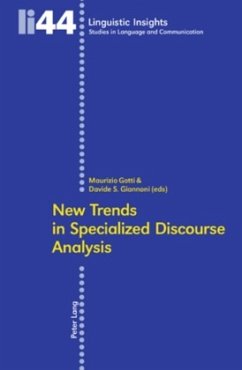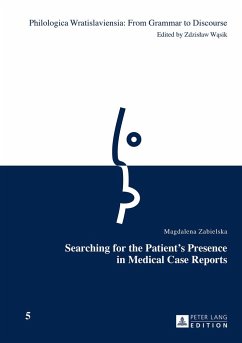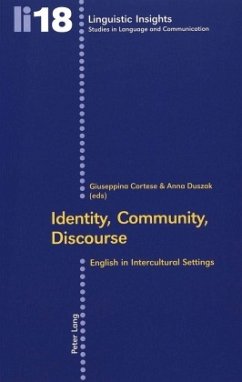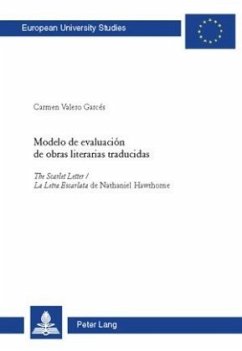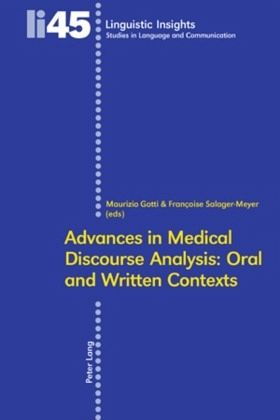
Advances in Medical Discourse Analysis: Oral and Written Contexts
Versandkostenfrei!
Versandfertig in 6-10 Tagen
146,50 €
inkl. MwSt.

PAYBACK Punkte
0 °P sammeln!
The focus of this volume is on medical discourse, a domain of language which deserves closer scrutiny by academics as well as practitioners, due to its increasing relevance and pervasiveness in modern society. Despite the wealth of publications dealing with specialized or academic discourse and its rhetoric, few of these are devoted specifically to medical discourse. This book seeks to redress the balance by bringing together a number of studies that bear witness to the widespread interest in medical texts shown by linguists and professional communities around the world. The volume is divided ...
The focus of this volume is on medical discourse, a domain of language which deserves closer scrutiny by academics as well as practitioners, due to its increasing relevance and pervasiveness in modern society. Despite the wealth of publications dealing with specialized or academic discourse and its rhetoric, few of these are devoted specifically to medical discourse. This book seeks to redress the balance by bringing together a number of studies that bear witness to the widespread interest in medical texts shown by linguists and professional communities around the world. The volume is divided into two main parts: the first targets medical discourse in its spoken dimension, while the second contains various analyses of written texts. The theoretical perspectives and individual case studies presented here reflect the wide range of methodological approaches and theoretical issues that characterise current research in the field.




